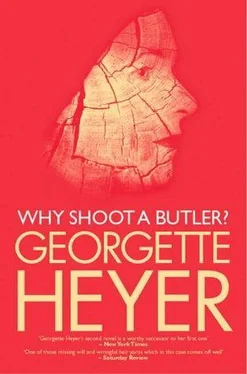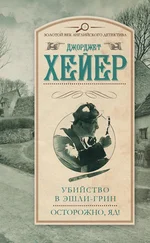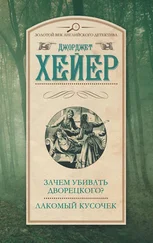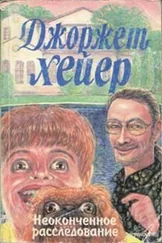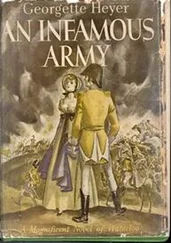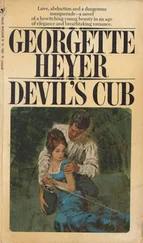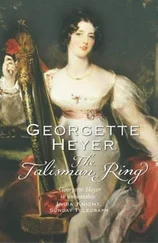"I see it's no use trying to conceal anything from you, Sergeant," said Mr. Amberley, shaking his head.
"Well, I hope I've got my share of brains, sir," replied the sergeant, slightly mollified. "I don't say I set out to be one of these people who think they know everything and, consequent, talk so clever there's no understanding what they're driving at half the time - if anything, which some people might doubt."
Mr. Amberley grinned. "Such as?"
"Just someone I happened to have in my mind," said the sergeant carelessly.
"Oh, I see. I thought you were talking about me for a moment."
The sergeant strove with himself. "Now look here, sir!" he said. "I can't stand in the road bandying words with you all day while you have your little bit of fun with me. I've got my work to do. I was going to mention to you that I don't like the look of that Collins, and never have, but what's the good? It wouldn't interest you."
"Not in the least," said Mr. Amberley frankly, "but it would interest me very much to know why he goes calling at Ivy Cottage."
"Well, that's something we can find out," said the sergeant, his spirits rising. "I don't say that I see what it's got to do with the crime, but if you want to know there'd be more sense in me investigating it than joining a lot of goggling fools in turning over dead leaves for a cartridge case. Which is what the inspector set some of the men on to do. And they haven't found it yet, nor they aren't likely to, though Constable Parkins found a kettle with a hole in it and the half of an old boot in the ditch."
"Did they find any trace of a bicycle having been pushed into the field behind the hedge?" Anthony inquired.
"No, sir, not so far as I know."
"Did they look in the field?"
"Oh yes, sir, they looked all right, but I wouldn't say but what they were a bit distracted like, on account of,I lot of young bullocks Mr. Fawcett's got in that field. They were a bit playful, I understand."
"Splendid! Did they play with Inspector Fraser?"
The sergeant put up a large hand to cover his mouth. "Well, sir, I did hear as how the inspector didn't stop long enough to give them the chance, so to speak."
Mr. Amberley laughed and switched on his engine again. "Not fond of animals, perhaps. Now, Sergeant, you mustn't keep me gossiping with you. I've got something better to do, you know."
"Me? Me keep you - ? Well, I'm…'
"And I'd rather you didn't investigate Collins' visit to Ivy Cottage, if it's all the same to you. I'll do that myself."
The car began to move forward; the sergeant walked beside it for a few steps. "That's all very well, sir, but when do we get something to go on?"
"All in good time," promised Mr. Amberley; "I haven't got much myself yet. I'll tell you this, though; unless Fin much mistaken you'll find that the murder of Dawson is the least interesting part of the whole problem. So long."
The sergeant fell back and stood watching the car go up the lane to Ivy Cottage. He shook his head darkly, turned his bicycle round, and resumed his interrupted progress into Upper Nettlefold.
Amberley left his car outside the little white gate and went up the path to the front door. The window of the living room was open, and through it he heard Mark Brown's voice say petulantly: "You made a bloody mess of the whole thing. You ought to have let me do it. I bet I wouldn't have let anyone steal a march on me. You let him get the thing and then you send for him to come up here. The hell of a lot of use that is! Supposing anyone had seen him?"
Amberley knocked loudly on the door, and the voice ceased abruptly. After a moment the door was opened by Mark Brown, and the bull-terrier bounded out apparently delighted to welcome the guest.
Amberley said easily: "Good afternoon. I came to return a piece of lost property to your sister."
Mark recognised him and flushed. "Oh, it's you, is it? Come in, won't you? I say - I'm afraid I was a bit screwed the other day. Awfully decent of you to have brought me home."
Amberley brushed that aside. When he liked he could be very pleasant, and apparently he liked now. He had Mark at his ease in two minutes, and Mark, losing some of his suspicion, invited him to come in to see his sister.
He came in, escorted by the bull-terrier, and preceded Mark into the little sitting room, where Shirley Brown was standing behind the table. She gave no sign of being pleased to see him, but watched him intently under her frowning brows.
Mr. Amberley was not in the least dismayed. "How do you do?" he said. "Did you get home all right the other evening?"
"If I hadn't I should hardly be here now," she replied.
"Oh, shut up, Shirley!" interposed her brother, pulling a chair forward. "Won't you sit down, Mr. - Amberley, isn't it? Didn't you say you had something belonging to my sister?"
A startled look leaped into her eyes. She said quickly: "Something of mine?"
"Something you left behind you at the manor," said Amberley.
There was a moment's tense silence; the brother's and sister's eyes met for an instant.
"Oh?" said Mark with forced carelessness. "What was that?"
"Just something Miss Brown dropped," said Amberley and brought out a crumpled handkerchief from his pocket. "Here it is."
The tenseness passed. Shirley took the handkerchief. "How very kind of you to go to so much trouble," she said ironically.
"Not at all," said Amberley courteously.
She stared at him in mingled surprise and hostility. Her brother, more hospitable than she, filled an awkward gap by asking Amberley if he would not stay to tea.
Amberley accepted, and meeting Shirley's indignant gaze smiled blandly at her. She swallowed something in her throat and stalked out of the room into the kitchen.
Mark began to apologise for the sparse surroundings. They had taken the cottage for a month, he said. They both worked in town - here his eyes shifted from Amberley's for a moment - and were on holiday. Shirley was Anne March's secretary. He expected that Amberley knew the name. She was a novelist and wrote pretty good tripe. Asked where he himself worked he answered uncommunicatively that it was in a bank. From his somewhat shamefaced manner and from the knowledge that bank clerks were not in the habit of enjoying a whole month's holiday, Amberley guessed that this job had come to an abrupt end. He was not surprised, but with rare tact led the talk away from such uncomfortable topics.
When Shirley reappeared with the tea-tray he was admiring a kaross of King Jackal skins which had been flung over the horsehair sofa. He said that a friend of his had brought one home from Durban. Mark replied that the shops there had lots of them; they were bought mostly by tourists.
Shirley interrupted this amiable interchange by demanding curtly whether her guest took milk and sugar. He transferred his attention to her, and to her annoyance insisted on discussing the ball at the manor. Her monosyllabic replies did not seem to abash him in the least. She knew by the twinkle in his eye that he was amused by her evident annoyance, and she tried to conceal it.
When tea was over she suggested to Mark that he might clear it away, and no sooner had he left the room than she attacked Amberley openly. "Well? What is it?" she asked.
"What is what?" he inquired.
"Why did you come? You don't suppose I believe that it was to bring me my handkerchief, do you? If you do you must think I'm a fool!"
"I do," he said. A rather disarming smile went with the words and provoked an answering gleam from her.
She suppressed it rigorously. "Nor can I suppose that you came for the pleasure of my callow company."
He laughed. "At least you have a good memory," he said.
"I think," she said forcefully, "that you are the rudest man I have ever had the misfortune to meet."
Читать дальше
